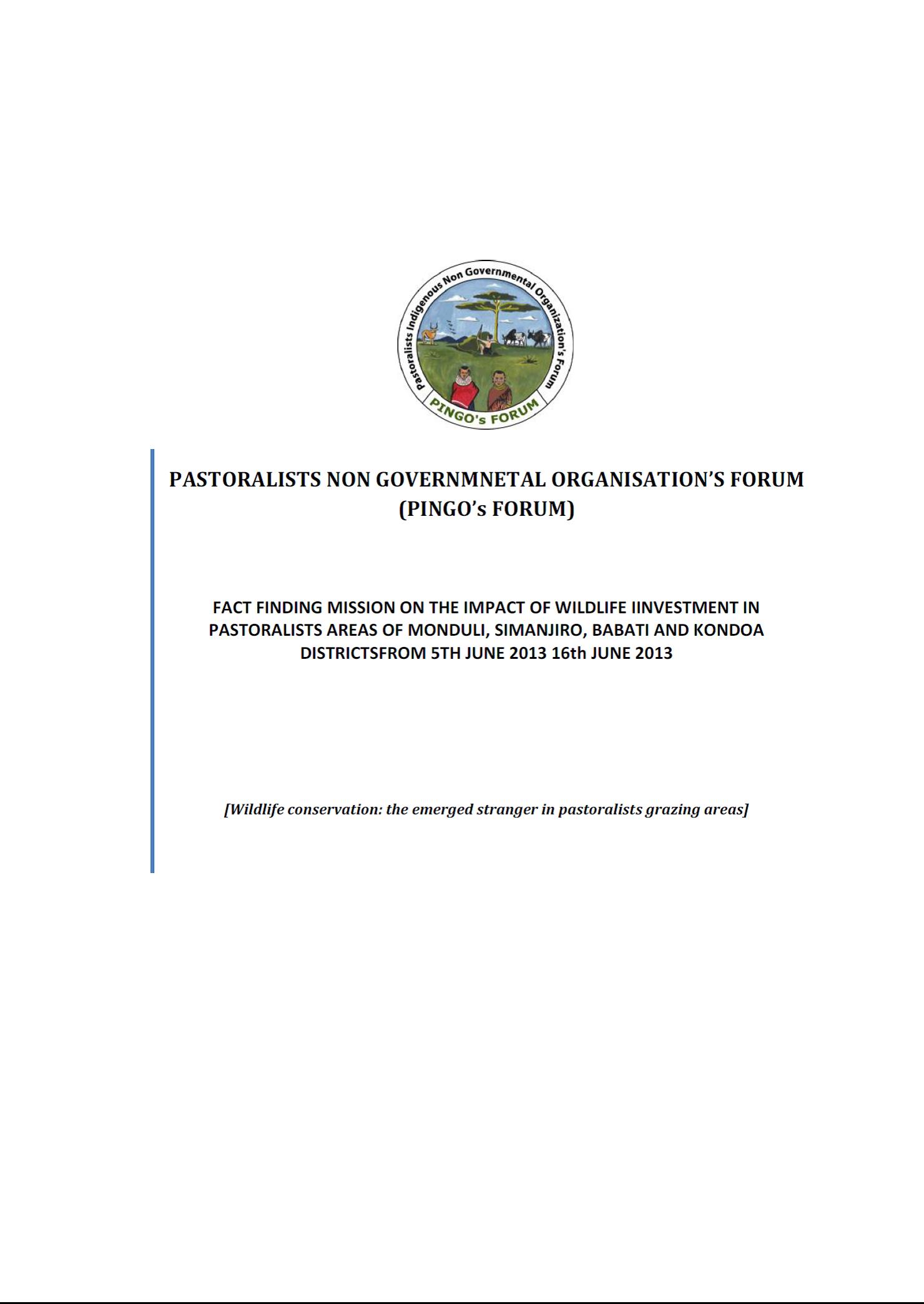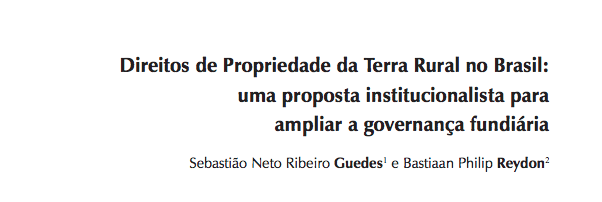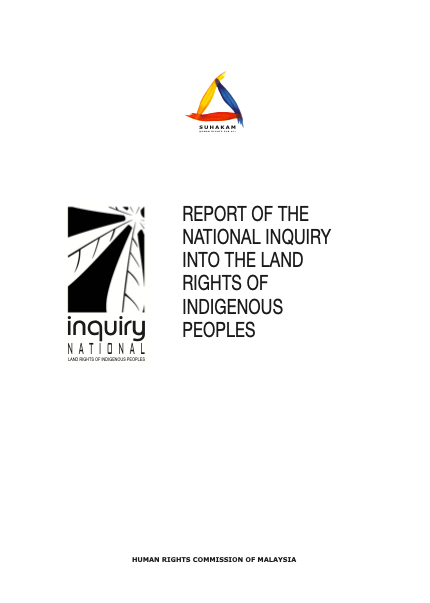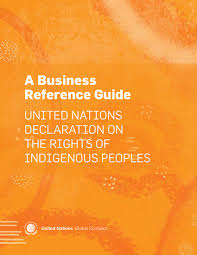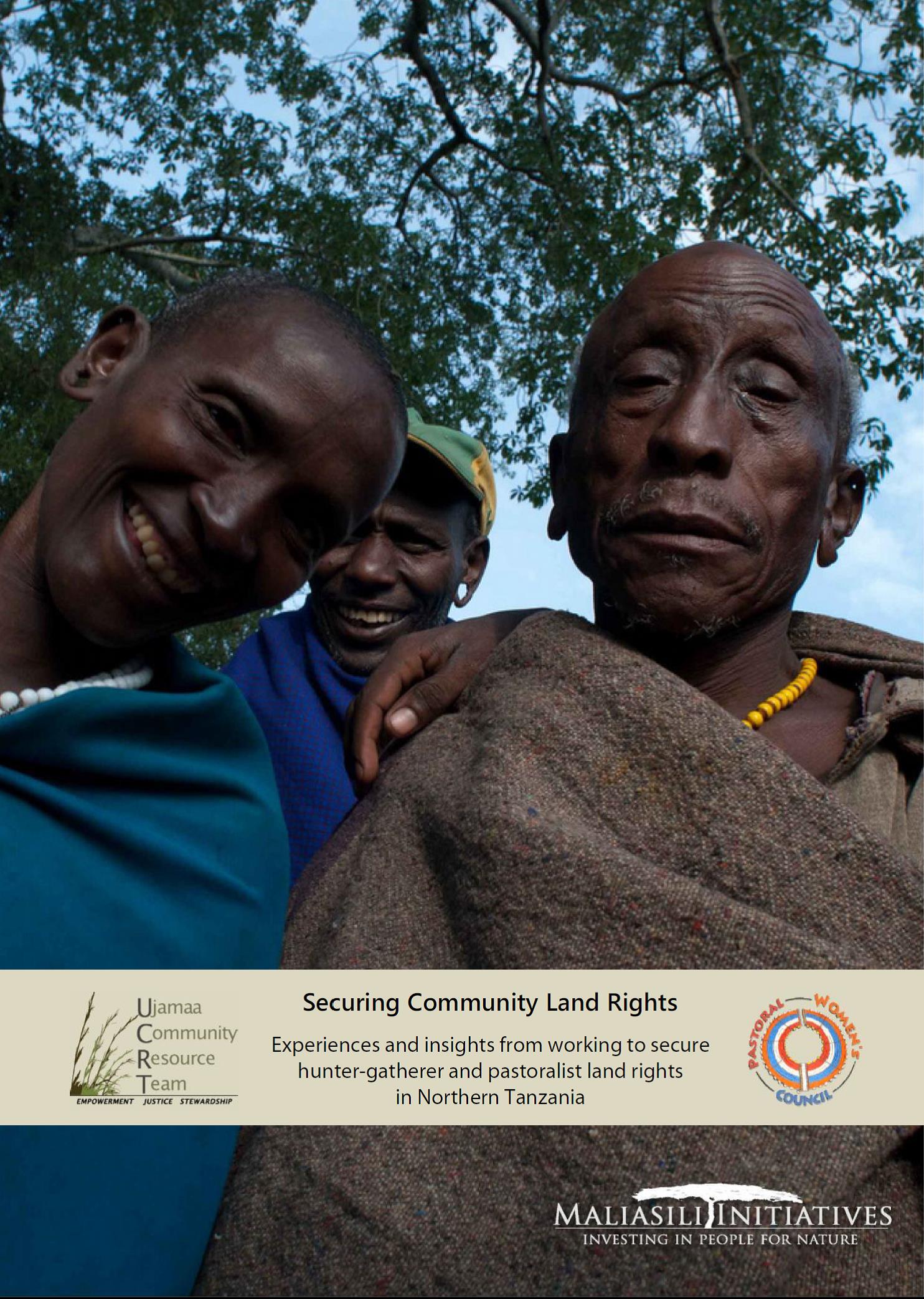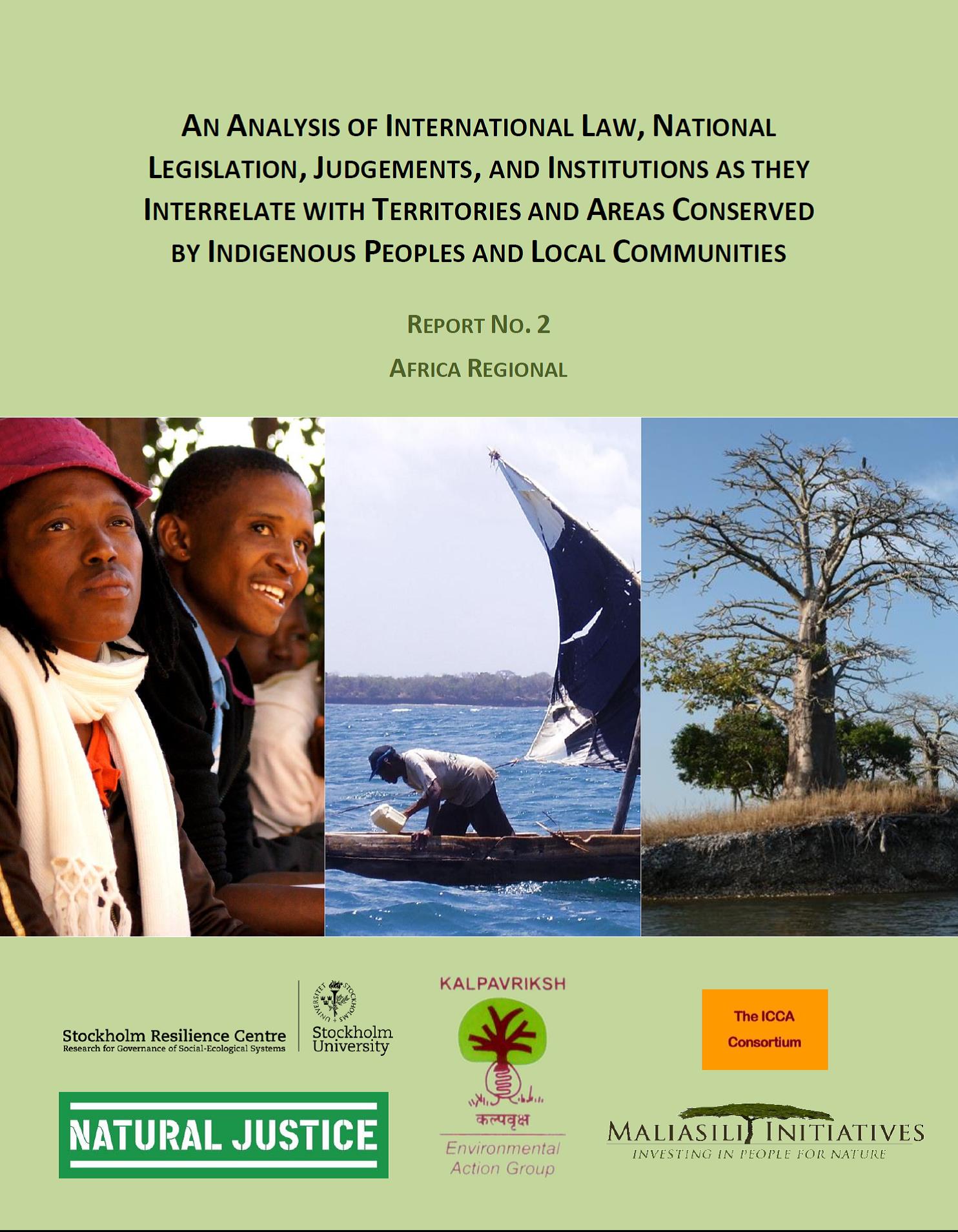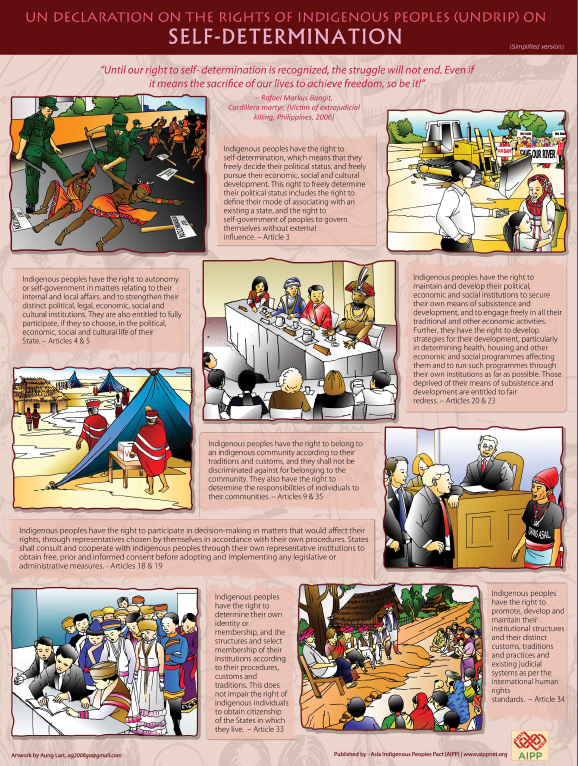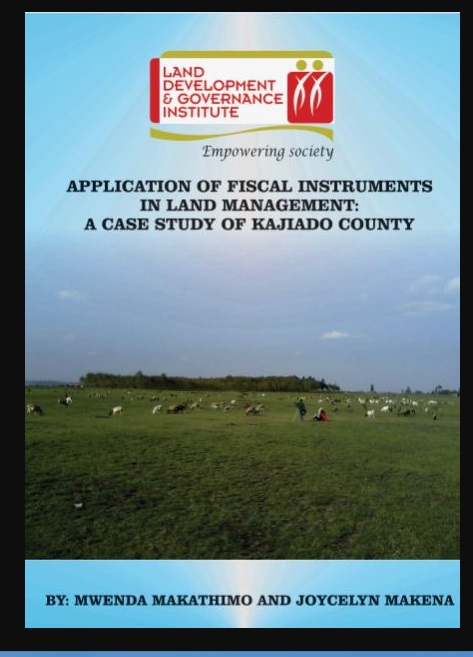Fact Finding Mission on the Impact of Wildlife Investment in Pastoralist Areas of Monduli, Simanjiro, Babati and Kondoa
This fact finding is the fulfilment of PINGO’s Forum daily activities for inquiring the challenges facing pastoralists communities. In this fact finding, we will look at the impact of wildlife conservations in pastoralists areas. The Wildlife sector has become a threat to livestock sectors by which the wildlife sector is grabbing livestock grazing areas in the name of wild life conservation. In this fact finding we will look at the impact of established Randile Wildlife Management Area (RWMA) into the grazing area of Lolkisale village among other five villages forming the WMA.

